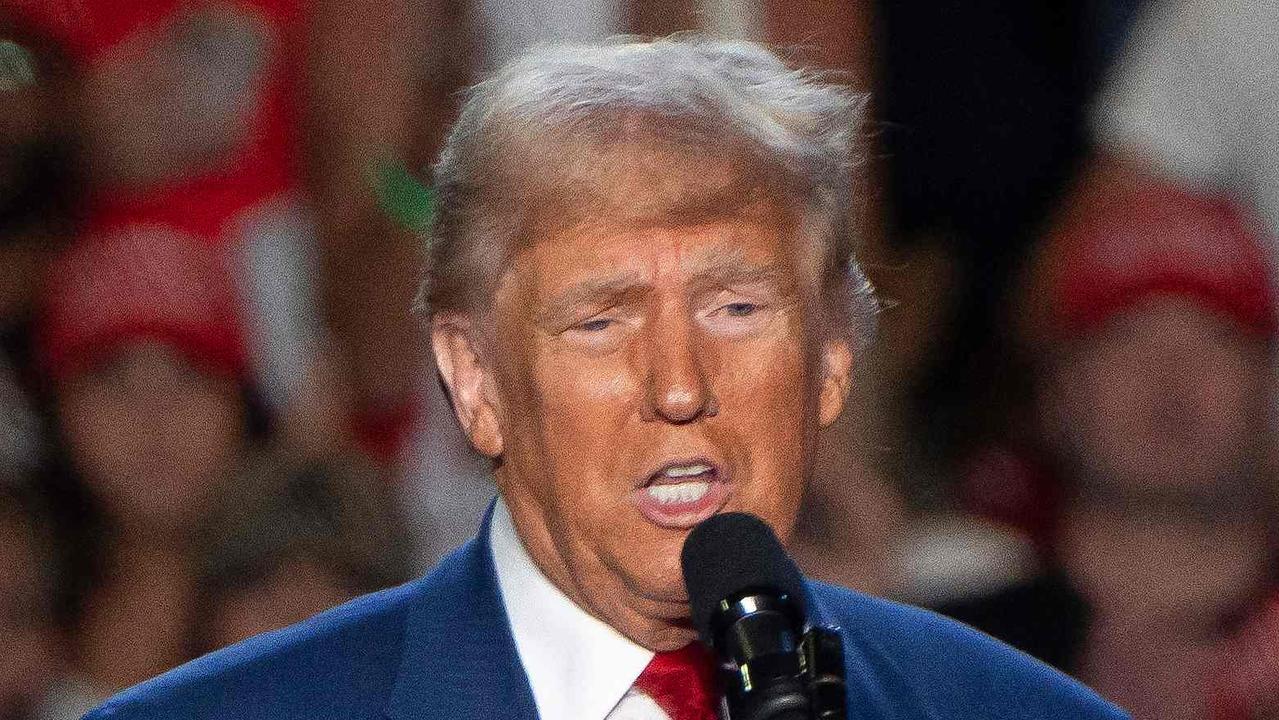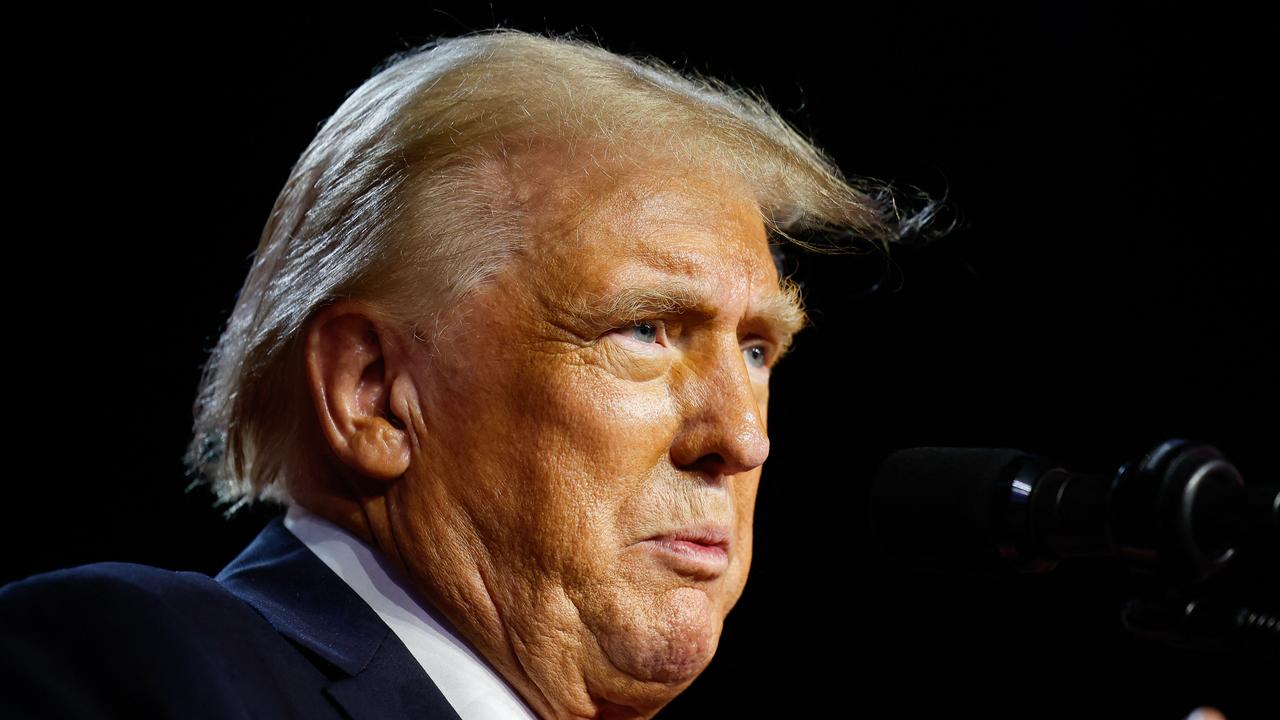After the election: Donald Trump could get even more ‘extreme’
THINK Donald Trump’s presidency has been wild so far? Just wait another few hours. He is set to become even more “extreme”.
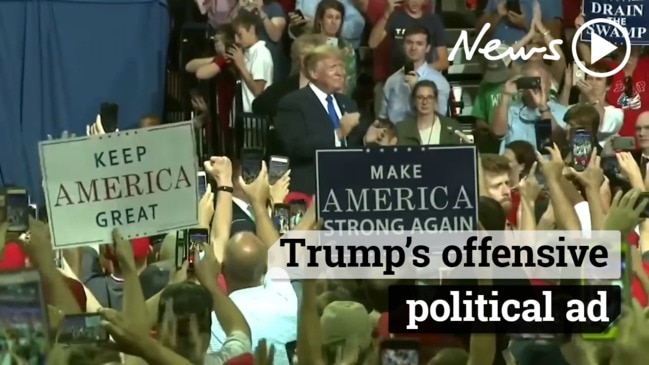
IF YOU think Donald Trump’s presidency has been a wild ride so far, just wait a few more hours.
When the results of America’s midterm elections roll in, Mr Trump could find himself at the mercy of his political opponents.
Polls strongly suggest Democrats will claim the House of Representatives, which would leave Mr Trump unable to pass legislation without their support.
They would also gain oversight powers over the White House, giving them the ability to thoroughly investigate Mr Trump and his associates.
The question is, how would Mr Trump respond to such a loss of power?
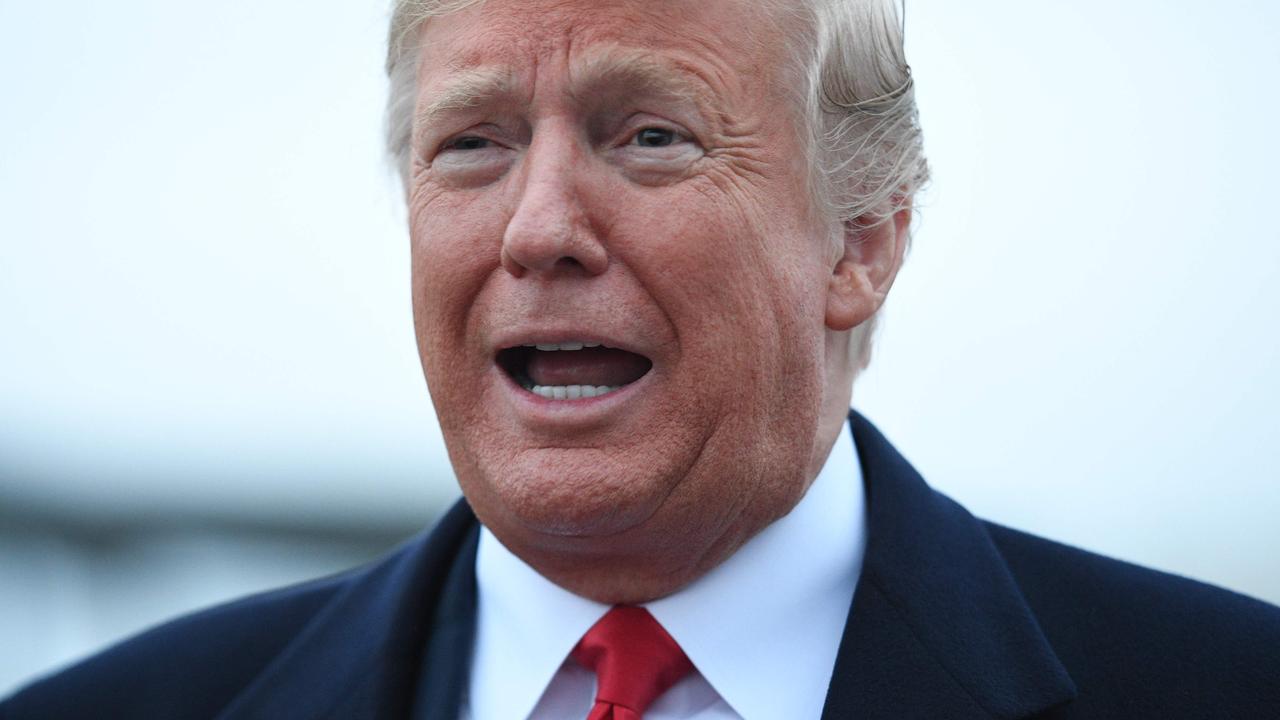
Former Australian prime minister Kevin Rudd is worried the President could transform into an even more “extreme” figure.
“What he would seek to do is wedge the Democrats on a series of foreign policy, immigration and economic policy questions in order to make the Democrats’ position look weak,” Mr Rudd told the Australian Financial Review today.
“And if that meant him taking a more extreme position to the right on these questions, he’s more likely to do so under those circumstances.”
The consequences would be felt around the world.
ESCALATING TRADE WAR
Mr Trump’s administration is currently locked in a tense stand-off with China over his efforts to end its “unfair” trade practices.
In September, the President imposed new tariffs on $200 billion worth of imports from the country, adding to the $50 billion he had already targeted.
“For months, we have urged China to change these unfair practices, and give fair and reciprocal treatment to American companies,” Mr Trump said at the time.
“We have been very clear about the type of changes that need to be made, and we have given China every opportunity to treat us more fairly.”
The rate of those tariffs is set to rise from 10 per cent to 25 per cent from January 1 next year, causing economic pain for both countries. Mr Trump has also threatened to extend the tariffs to another $267 billion worth of goods.
China has responded with its own tariffs on American products, but is now suffering an economic slowdown.
Mr Rudd believes a bad result for Mr Trump in the midterms would hinder efforts to end the trade war quickly.
“If he emerges in an embattled state from the midterms, having lost the House, and a further embattled state if he then faces adverse findings from the Mueller investigation, I’m less optimistic that he would have the political capital in his own mind to strike a deal with Xi Jinping to bring the trade war to an end,” Mr Rudd told the AFR.
Mr Trump has agreed to meet Chinese President Xi Xinping for dinner at the G20 Summit in Argentina at the end of this month. There are hopes a deal could be struck there.
“We’ve had very good discussions with China. We’re getting much closer to doing something. They very much want to make a deal,” Mr Trump told reporters last week.
“As you know, their economy went way down since we’ve been doing this skirmish. I spoke with President Xi yesterday. They very much want to make a deal.
“They want to make a deal very badly. We want to make a deal if we can.”
Should Mr Trump lose control of Congress, the already slim chances of that deal being reached will evaporate further.
LIMITED POWER
Why is trade so inextricably linked to the midterm results? Because Mr Trump will retain his influence in that area regardless of what happens.
The President’s executive powers, which give him authority over government agencies and regulations, do allow him to circumvent Congress on most foreign policy matters. So while he would be largely hamstrung on any policy requiring legislation, he could continue his stand-off with China without restraint.
Mr Trump’s predecessor, Barack Obama, faced a similar situation after his own crushing defeat in the 2010 midterm elections.
With the House under Republican control and negotiation a mostly fruitless pursuit for both sides, Mr Obama relied on executive orders to enact his agenda.
The problem with that approach became obvious as soon as he left office — Mr Trump could simply saunter into the White House and reverse those executive orders with a stroke of his own pen.
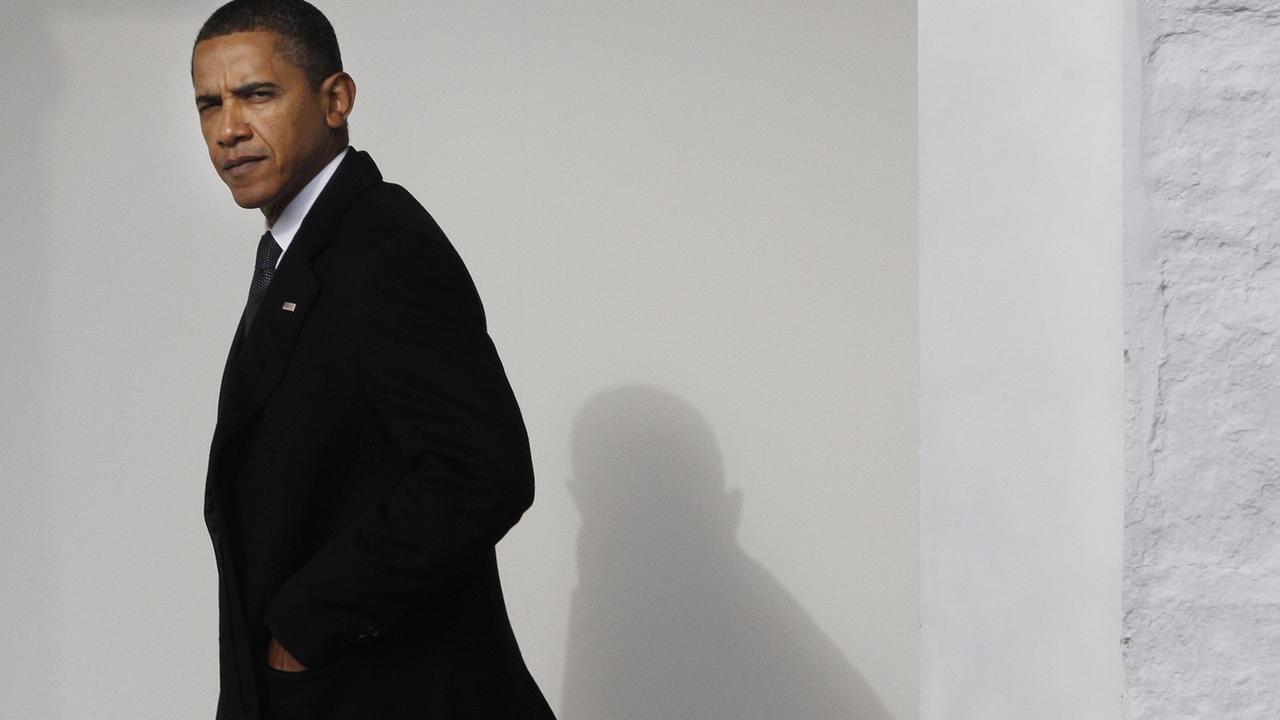
Then there is another factor making Mr Trump’s life more complicated — the Mueller investigation.
Vanity Fair reports the President’s aides are preparing for Special Counsel Robert Mueller to deliver his report into Russian election interference as early as the day after the midterms, or at least later this month.
They are worried the report could spell trouble for Mr Trump’s son, Donald Jr, who may have lied to investigators when he claimed he had not told his father about the infamous Trump Tower meeting, in June 2016, beforehand.
Mr Trump’s natural instinct whenever he is threatened is to fight back.
If the Mueller investigation closes in, and resurgent Democrats follow through on their promise to start digging into the Trump Organisation’s finances, there is always a risk the President will do something drastic.



